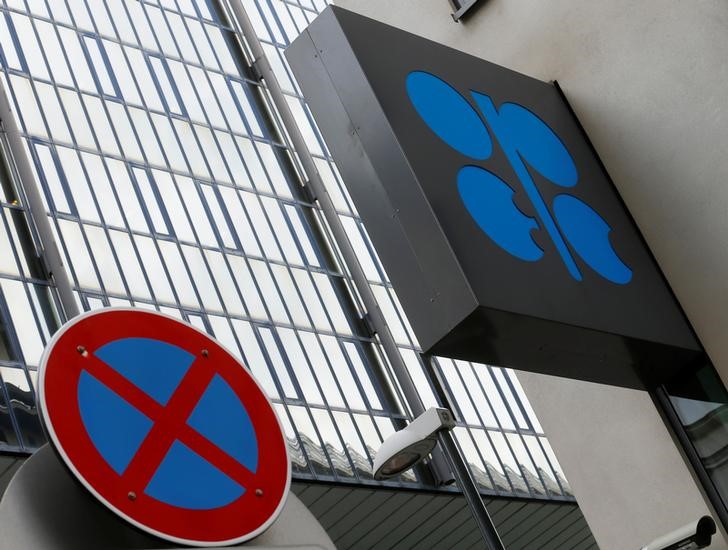By Shadia Nasralla and Alex Lawler
VIENNA (Reuters) - OPEC is set for another showdown between rivals Saudi Arabia and Iran when it meets on Thursday, with Riyadh trying to revive coordinated action and set a formal oil output target but Tehran rejecting the idea.
Tensions between the Sunni-led kingdom and the Shia Islamic Republic have been the highlights of several previous OPEC meetings, including in December 2015 when the group failed to agree on a formal output target for the first time in years.
Several OPEC sources said Saudi Arabia and its Gulf allies would propose to set a new collective ceiling in an attempt to repair OPEC's waning importance and end a market-share battle that has sapped prices and cut investment.
"The Gulf Cooperation Council is looking for coordinated action at the meeting," a senior OPEC source said, referring to a group combining OPEC's biggest producer Saudi Arabia and its Gulf allies Qatar, Kuwait and the United Arab Emirates.
Any agreement between Riyadh and Tehran would be seen as a big surprise by the market, which in the past two years has grown increasingly used to clashes between the political foes as they fight proxy wars in Syria and Yemen.
Saudi Arabia effectively scuppered plans for a global production freeze - aimed at stabilising oil markets - in April. It said then that it would join the deal, which would also have involved non-OPEC Russia, only if Iran agreed to freeze output.
Tehran has been the main stumbling block for the Organization of the Petroleum Exporting Countries to agree on output policy over the past year as the country boosted supplies despite calls from other members for a production freeze.
Tehran argues it should be allowed to raise production to levels seen before the imposition of now-ended Western sanctions over Iran's nuclear programme.
Iranian Oil Minister Bijan Zanganeh said Tehran would not support any new collective output ceiling and wanted the debate to focus on the more radical idea of individual country production quotas.
"An output ceiling has no benefit to us," Zanganeh told reporters upon arriving in Vienna late on Wednesday and before seeing any fellow OPEC ministers.
COUNTRY QUOTAS
New Saudi Energy Minister Khalid al-Falih was the first OPEC minister to arrive in Vienna this week, signalling he takes the organisation seriously despite fears among fellow members that Riyadh is no longer keen to have OPEC set output.
At its previous meeting in December 2015, OPEC failed to set any production policy including a formal output ceiling, effectively allowing its 13 members to pump at will in an already oversupplied market.
As a result, prices crashed to $27 per barrel in January, their lowest in over a decade, but have since recovered to around $50 (£34.7) due to global supply outages.
Those include declining output from U.S. shale producers badly hit by low prices but also forest fires in Canada, militant attacks on pipelines in OPEC member Nigeria and declining output in Venezuela, also a member of the group.
Until December 2015, OPEC had a ceiling of 30 million barrels per day (bpd) - in place since December 2011, although it effectively abandoned individual production quotas years ago.
OPEC currently produces around 32.5 million bpd. Any ceiling below that number would represent an effective cut.
"One of our main ideas (is) to have a country quota. But I don't believe at this meeting we can reach agreement for this," Zanganeh said, adding that Iran was producing 3.8 million bpd and would soon reach pre-sanctions levels of 4 million bpd.
Should OPEC fail to agree any policy on Thursday, it would again convince the market that its main members could try to raise supplies further to gain market share despite low prices.
UAE Oil Minister Suhail bin Mohammed al-Mazroui said oil markets were still not close to rebalancing due to a severe glut and a further price correction was possible.
The Venezuelan energy minister also warned that supply outages have propped up prices in recent months but a global oil glut might build up again when missing barrels return.

"More than 3 million barrels are out of the market. When those circumstances are removed from the market, what's going to happen?" Eulogio Del Pino told reporters in Vienna.